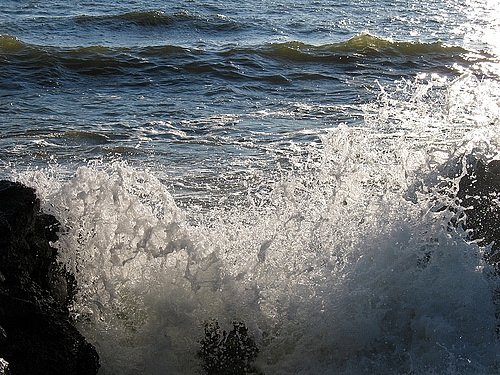About Estonia
Estonia – the smallest Baltic State and one of the smallest European Union member-states – is located in the northern Europe, on the eastern shore of the Baltic Sea. In the east Estonia borders Russia, in the south – Latvia. Estonia has also a sea border with Finland in the north, in the Gulf of Finland, and Sweden in the west, in the Baltic Sea.
National Economy
* The state, which is characterized by political and economic stability, accessibility, small entrepreneurship costs, low bureaucracy and equality of investors.
* Like in other Baltic States, a rapid growth was prevented by the financial crisis, however the Estonian government debt is among the lowest ones in Europe, and the national economy showed a considerable resistance against the global economic crisis.
* Taxes in Estonia are low, and the taxation system is simple, expendi¬tures are substantially lower than in the neighboring Nordic States.
* Estonia has one of the highest international credit ratings in the region (Fitch IBCA, Standard & Poor’s, Moody’s).
* Since January 1st, 2011 it has joined the euro zone.
* Estonia is one of the leading states worldwide in introducing and developing the e-government with the very well developed internet infrastructure.
* The main economic spheres are engineering industry, IT, food industry, metalworking, chemical industry and wooden item manufacturing.
Participation in the International Organizations
* On September 17th, 1991 Estonia became the UNO member-state.
* The European Union member-state (01.05.2004) and NATO member-state (29.03.2004).
* Organization for Economic Cooperation and Development (OECD) member-state (09.12.2010).
* Joined the euro zone (01.01.2011).
Government
* Parliamentary democracy. President is elected by the one-chamber parliament (elections every five years, next – in 2016).
* Legislative power belongs to the one-chamber parliament Riigikogu, which is composed of 101 deputies. It is elected through the direct, population-basis elections for four years. Government is formed by the prime-minister, who is appointed by the president, and 14 ministers.
History
* Estonians are one of the Baltic-Finnish nations ethnically related to Finns and Saami. Historically and in respect of culture Estonia always had strong links with the Nordic States. Estonian belongs to the Finno-Ugric language group and is analogous to Finnish and distantly analogous to Hungarian.
* For hundreds of years the Estonian land was under Russian, Danish, Swedish and German authority. These nations had
a specific influence on the culture of Estonia.
* Estonia became an independent state on February 24th, 1918.
* In 1940 Estonia was occupied by the Red Army and in August it had to join the Soviet Union.
* On November 16th, 1988 the Republic of Estonia was declared by the Declaration of Independence, however official independence from the USSR was regained on August 20th, 1991.
* The capital city Tallinn is one of the cities in Europe, which is best preserved since the Middle Ages and which old town is included in the UNESCO World Heritage List.
Nature
* Estonia is one of the European countries with most flat-bottom land and located beyond the sea level. The largest area is covered by forests (more than 50%) and swamps, or land used for agricultural purposes.
* About 10% of the territory of Estonia – islands, with their total number in the Monzundo archipelago reaching about 1500.
The largest of them are Saaremaa, Hiiumaa, Muhu and Vormsi.
* Natural resources: phosphorites, limestone, kerosene shale, sand, peat.
* Moderate marine climate with cool summers and warm winters, and in the eastern area it passes into a moderate continental climate. Average temperature in January is +4°C in the west to –7,5°C in the east. Average temperature in July changes from +16,5°C in the west to +17,5°C in the east.
Culture and Sport
* Certainly the Song Festival traditions established in the 19th century are highly respected. UNESCO has recognized this event as a verbal and non-material human culture heritage monument.
* A visiting card of Estonia is modern classical music. Serious music fans are well aware of composers Arvo Pärt, Veljo Tormis and Erkki-Sven Tüür or conductors Neeme Järvi, Eri Klas, Anu Tali, and Tõnu Kaljuste.
* Among the most famous Estonians, there should be mentioned a writer Jaan Kross, whose works are translated into 20 languages, an author of the folk epos Kalevipoegs – Friedrich Reinhold Kreutzwald, as well as a writer, a film director and a politician Lenarts Meri.
* As one of the most significant art events it is mentioned the opening of the new Estonian Art Museum KUMU in Tallinn (Kadriorg) in 2006.
* Representing their state, Estonians have won numerous Olympic medals. Most of Olympic medals were awarded to the long-distance skier Andrus Veerpalu.
QUICK FACTS
Name: Republic of Estonia (Eesti Vabarik).
Area: 45 228 km²
Population: 1,34 million: Estonians (69%), Russians (26%), Ukrainians (2%), Byelorussians (1%) and Finns (1%).
Capital city: Tallinn (400 000 inhabitants).
Government: parliamentary republic.
Head of the State: president.
Currency: euro.
Language: Estonian.
Religion: Lutherans, other active religions: Orthodox believers, Baptists, Methodists and Catholics.
Time zone: UTC+2
International telephone code: + 372
State code in the global network: .ee
Living cost: Tallinn is the 124th expensive city worldwide (Mercer Human Resource Consulting data for 2011).
Number of users of the global network: 75,1% of all inhabitants of Estonia (2011).
More information about Estonia
State President – www.president.ee
Parliament (Riigikogu) – www.riigikogu.ee
Government – www.valitsus.ee
Estonian Ministry of Foreign Affairs – www.vm.ee
Encyclopedia about Estonia – www.estonica.org
Tourism portal – www.visitestonia.com
Enterprise support institution Enterprise Estonia – www.eas.ee
Estonian Investment and Trade Agency – www.investinestonia.com; www.tradewithestonia.com
Official state portal of Estonia – http://www.eesti.ee/eng/
Estonia on Wikitravel portal – http://wikitravel.org/en/Estonia
Photo: Pilseta24.lv





